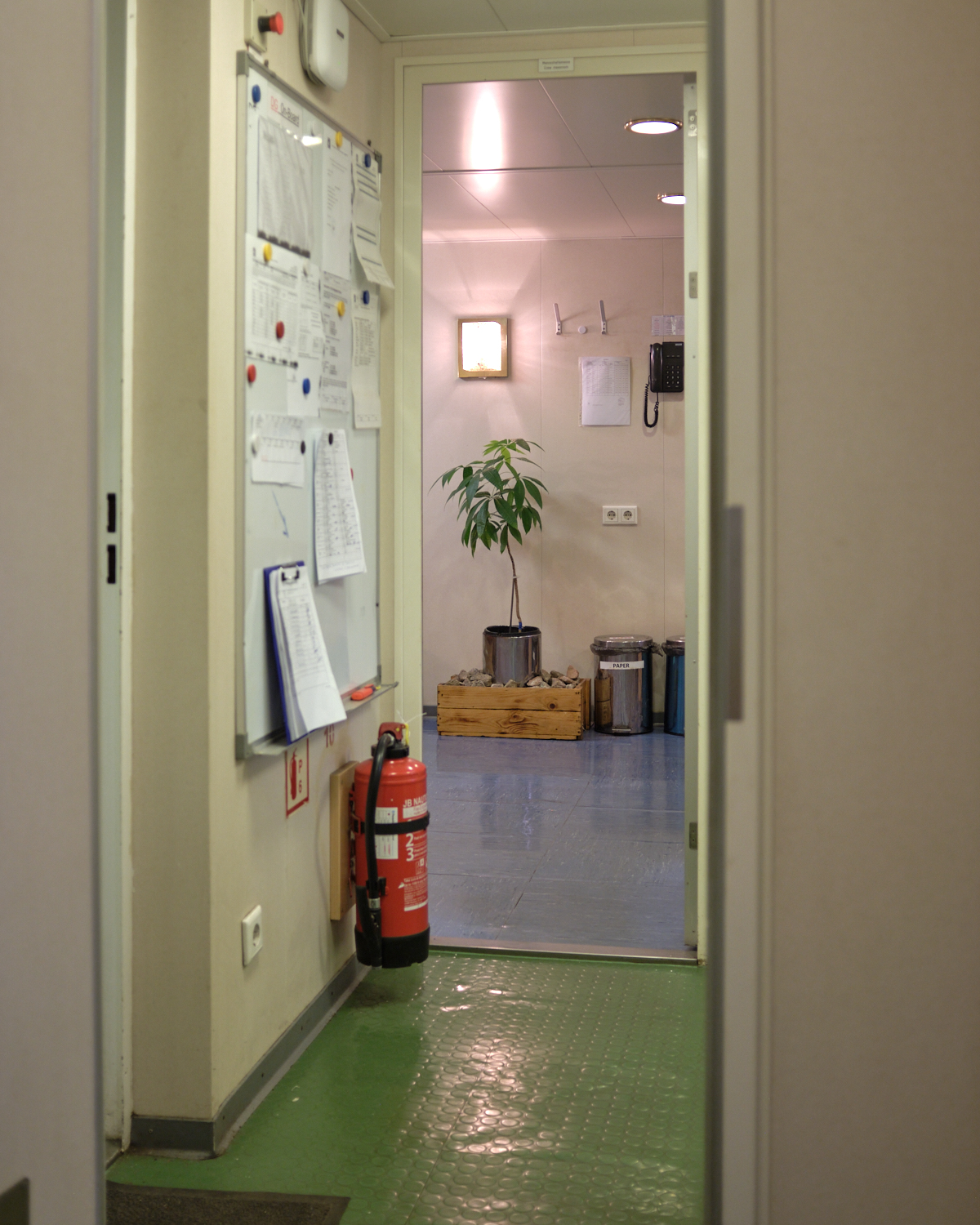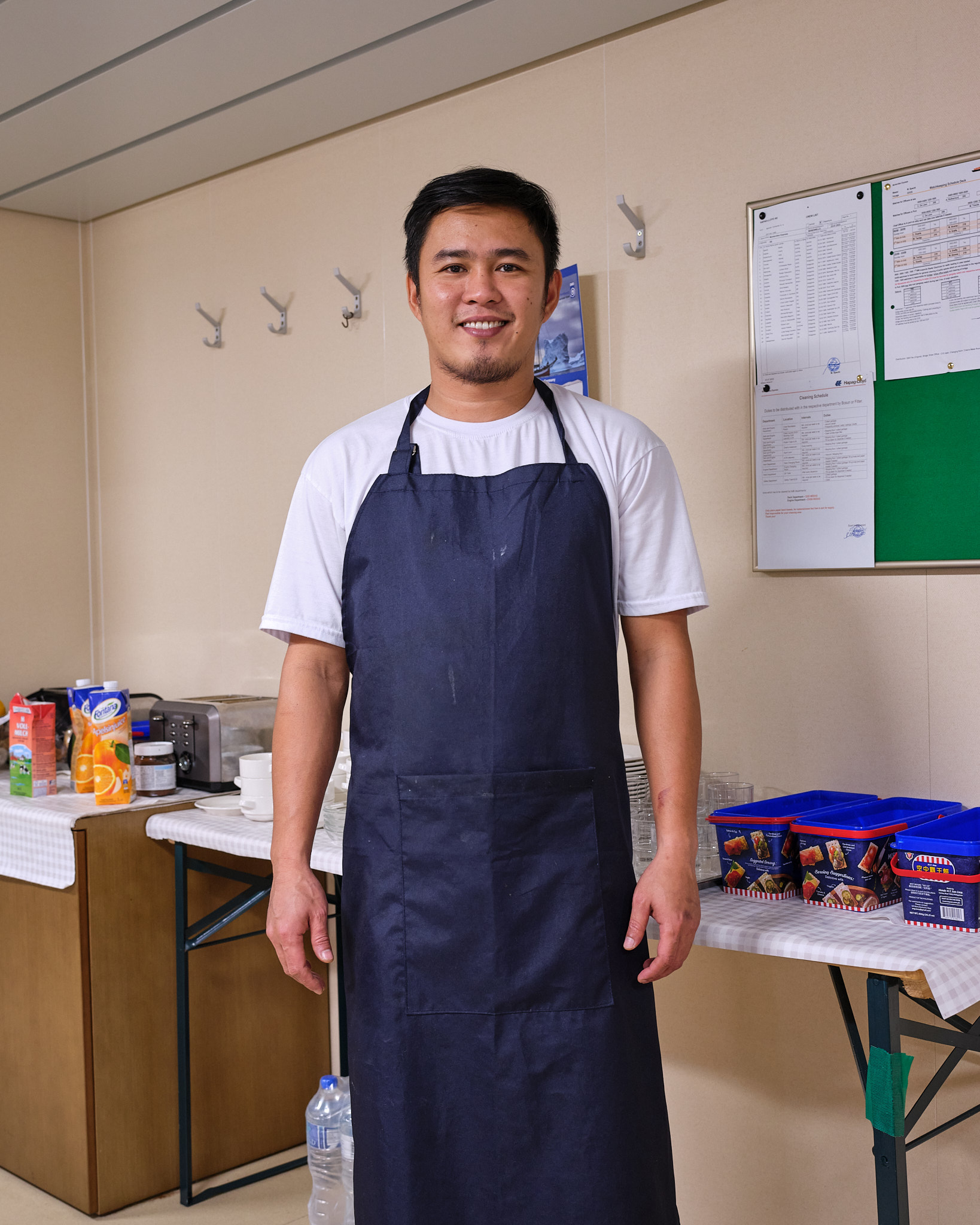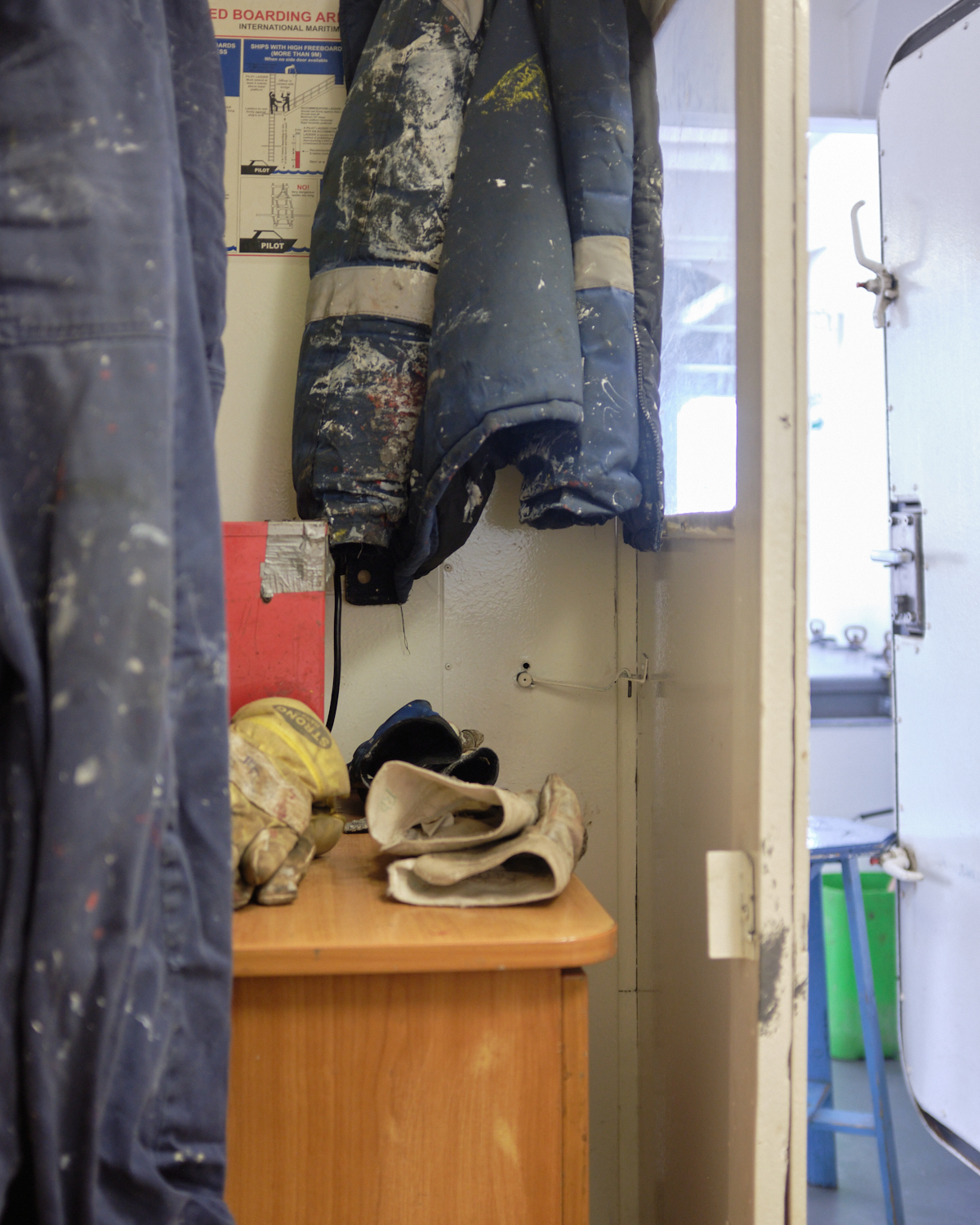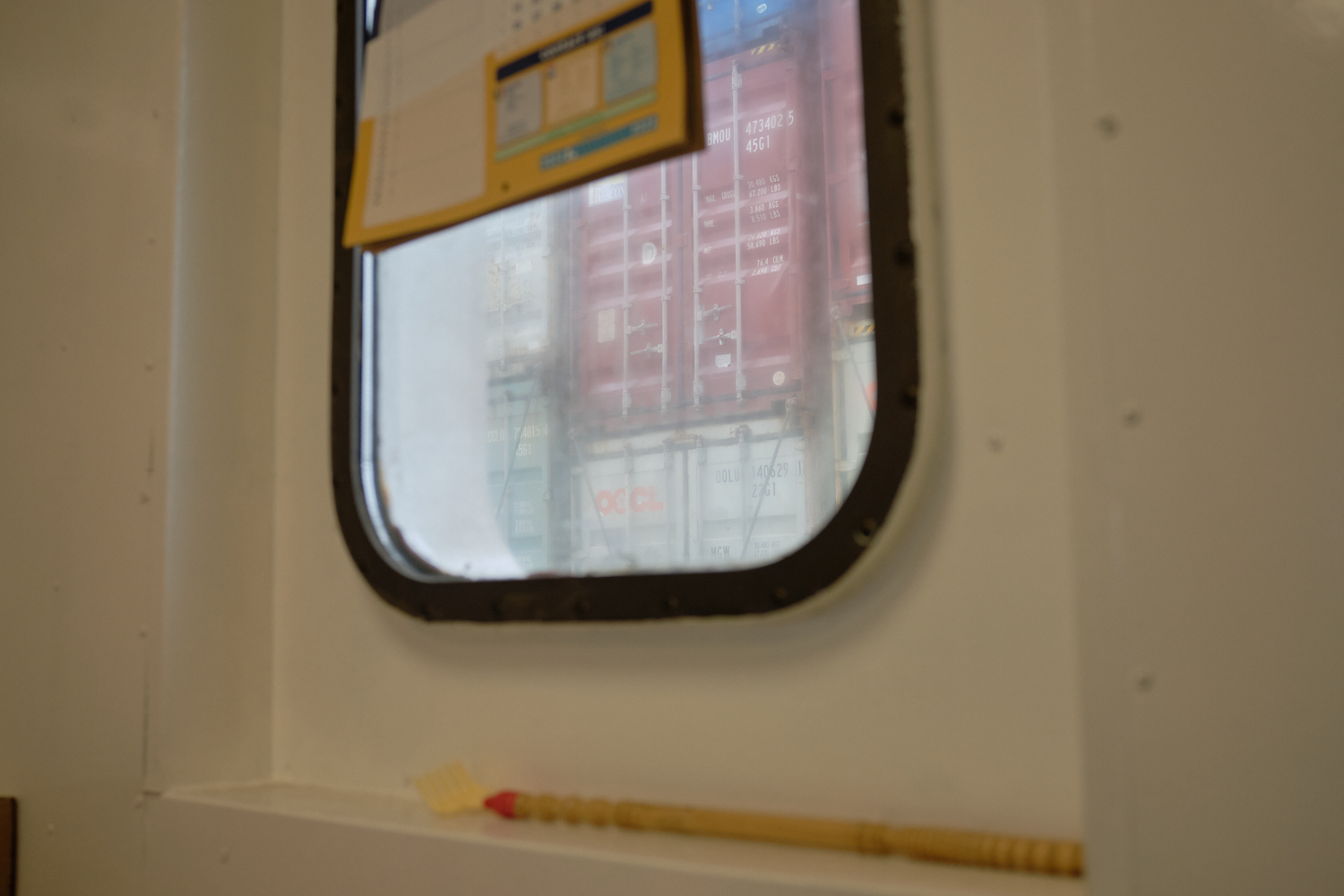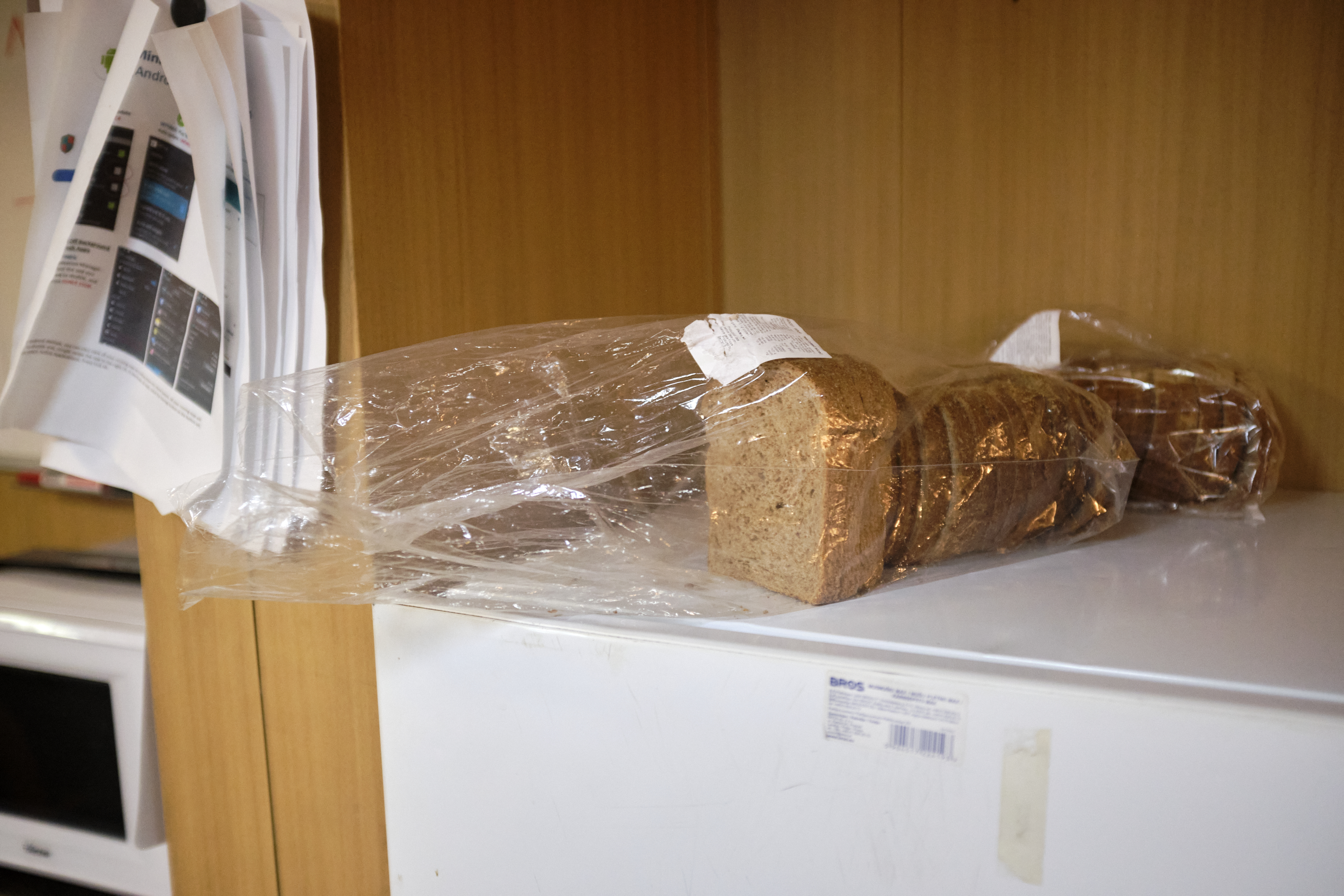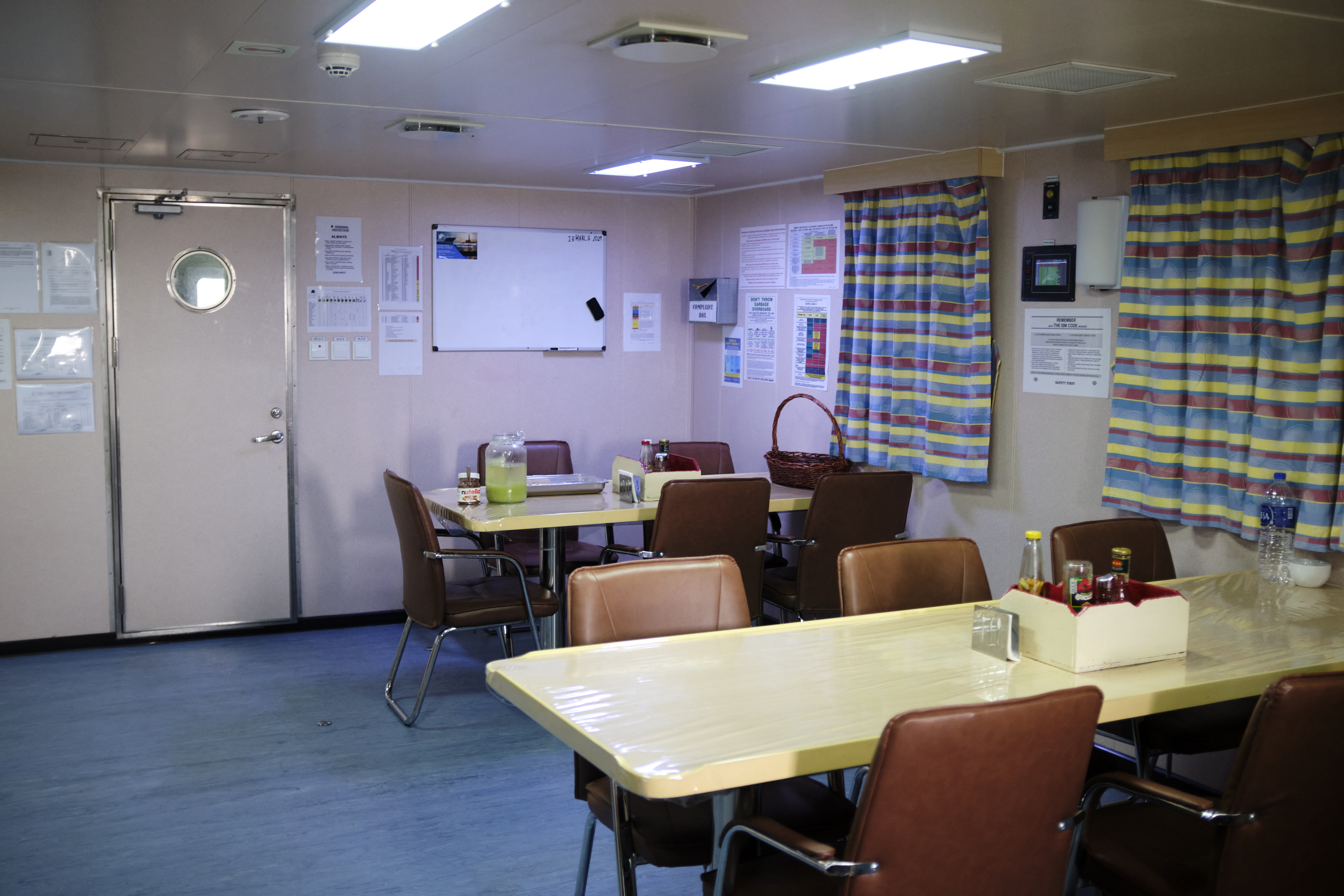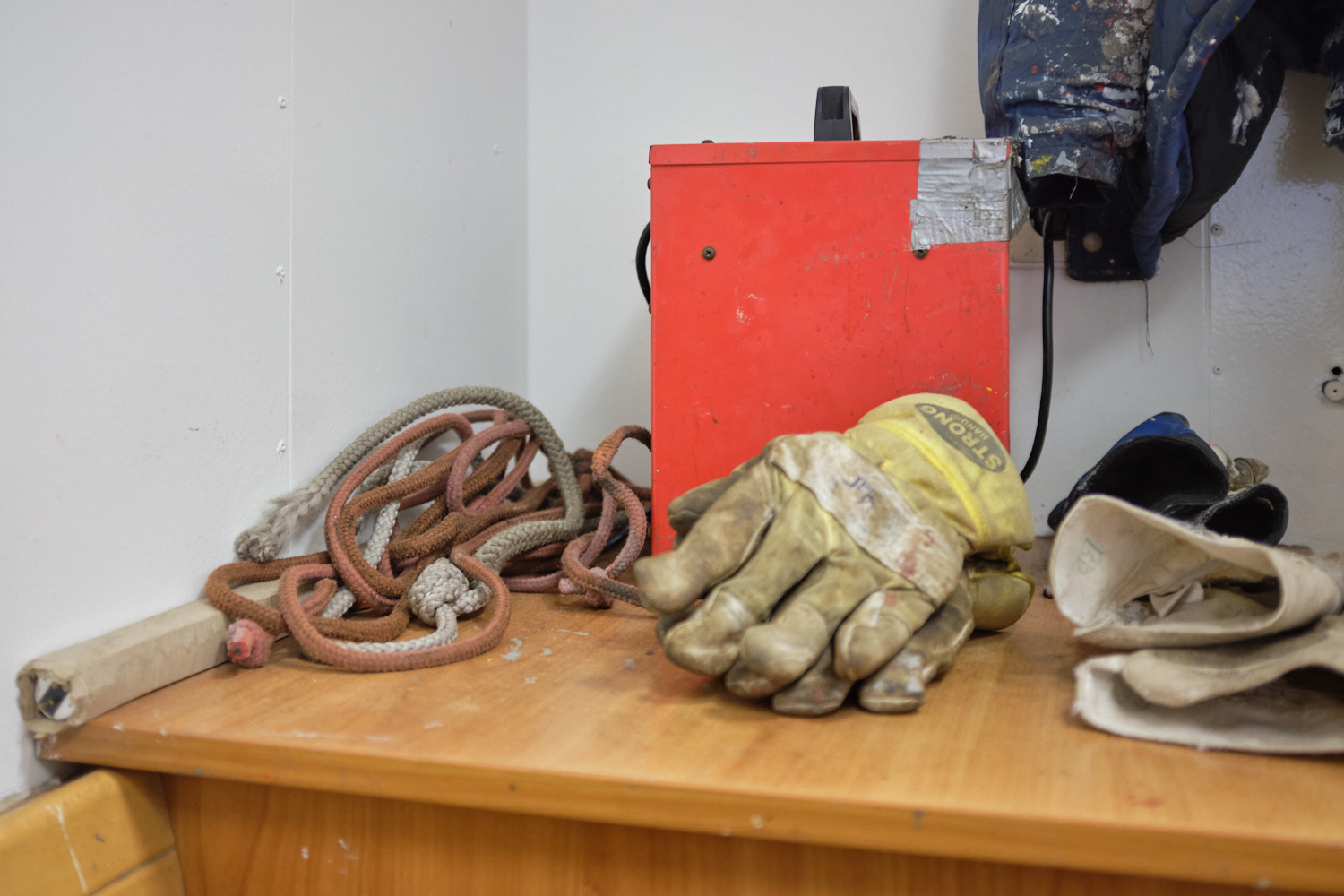The Heavy Loads of Our World - Continuation
(work in progress)
With this continuation, I shift focus from the ships themselves to the people who keep them moving. About 90% of everything we consume travels by sea, yet the seafarers who make this possible remain largely invisible. Without them, there would be no smartphones, washing machines, or office chairs.
I am particularly interested in Filipino seafarers, who make up more than 25% of the global maritime workforce. These men leave their home communities in the Philippines for contracts of 6 to 12 months aboard cargo ships, maintaining transnational identities between their life on board and their family obligations at home. Digital communication plays a crucial but limited role in bridging this distance. The central question driving this work is how Filipino seafarers sustain these identities and social relations within the structural constraints of the global maritime labor market, and how visual ethnography can make visible these processes of self-determination and alienation.
The Western perspective often assumes that crews are simply underpaid while working long hours. This view is reinforced by the "flag of convenience" system, where shipping companies register vessels under flags of countries with favorable regulations and tax benefits, regardless of actual ownership. Such arrangements affect wages, labor conditions, and workers' rights. But this framing risks reducing seafarers to victims. I want to move beyond that gaze and understand how they themselves experience and navigate this world.
To build trust and gain deeper access, I volunteer as a driver at the International Seafarers' Center The Bridge in Oostvoorne. The center offers free transport for seafarers to get ashore, providing WiFi to contact home and access to the nearby village. Through these brief but recurring encounters, I gain insight into their daily lives. The work also grants me access to ships, where I can photograph their working and living spaces.
Read more about the first part of this project. View the exhibition history.
(work in progress)
With this continuation, I shift focus from the ships themselves to the people who keep them moving. About 90% of everything we consume travels by sea, yet the seafarers who make this possible remain largely invisible. Without them, there would be no smartphones, washing machines, or office chairs.
I am particularly interested in Filipino seafarers, who make up more than 25% of the global maritime workforce. These men leave their home communities in the Philippines for contracts of 6 to 12 months aboard cargo ships, maintaining transnational identities between their life on board and their family obligations at home. Digital communication plays a crucial but limited role in bridging this distance. The central question driving this work is how Filipino seafarers sustain these identities and social relations within the structural constraints of the global maritime labor market, and how visual ethnography can make visible these processes of self-determination and alienation.
The Western perspective often assumes that crews are simply underpaid while working long hours. This view is reinforced by the "flag of convenience" system, where shipping companies register vessels under flags of countries with favorable regulations and tax benefits, regardless of actual ownership. Such arrangements affect wages, labor conditions, and workers' rights. But this framing risks reducing seafarers to victims. I want to move beyond that gaze and understand how they themselves experience and navigate this world.
To build trust and gain deeper access, I volunteer as a driver at the International Seafarers' Center The Bridge in Oostvoorne. The center offers free transport for seafarers to get ashore, providing WiFi to contact home and access to the nearby village. Through these brief but recurring encounters, I gain insight into their daily lives. The work also grants me access to ships, where I can photograph their working and living spaces.
Read more about the first part of this project. View the exhibition history.

